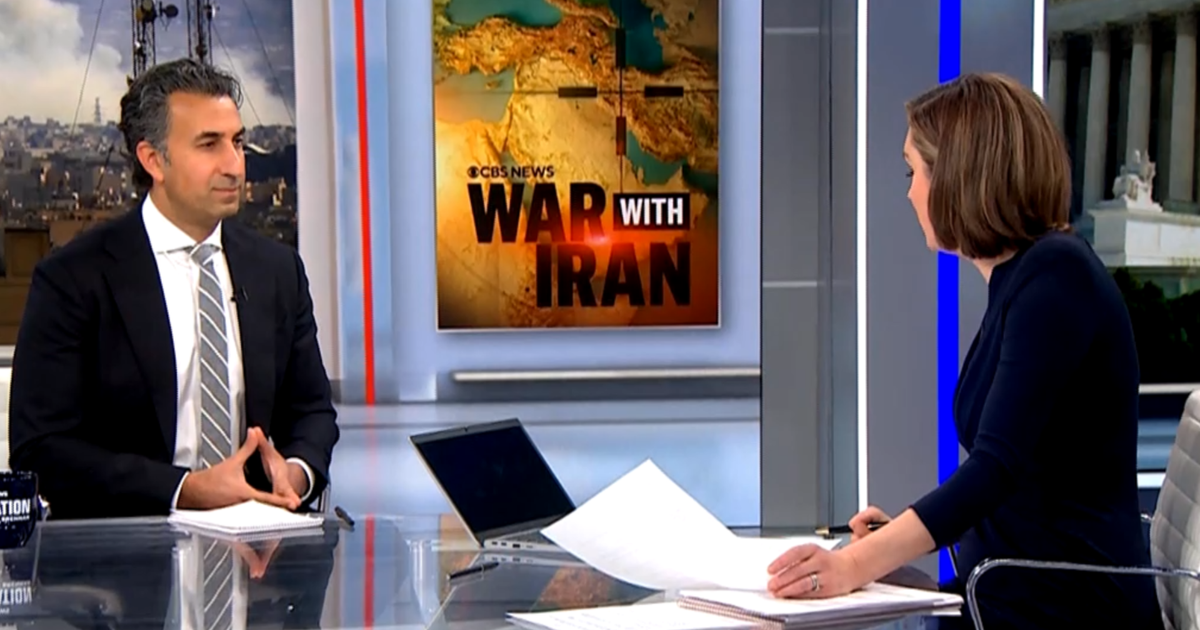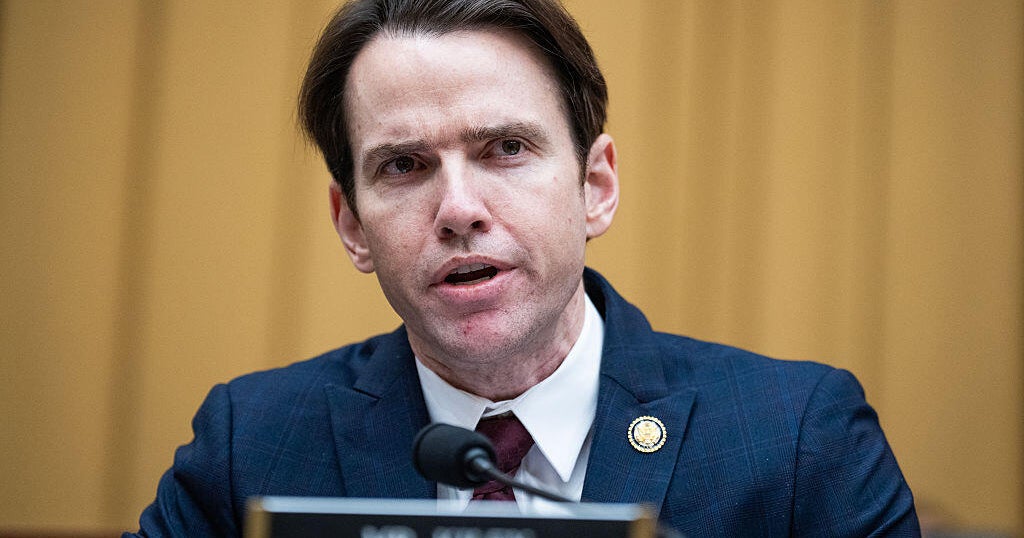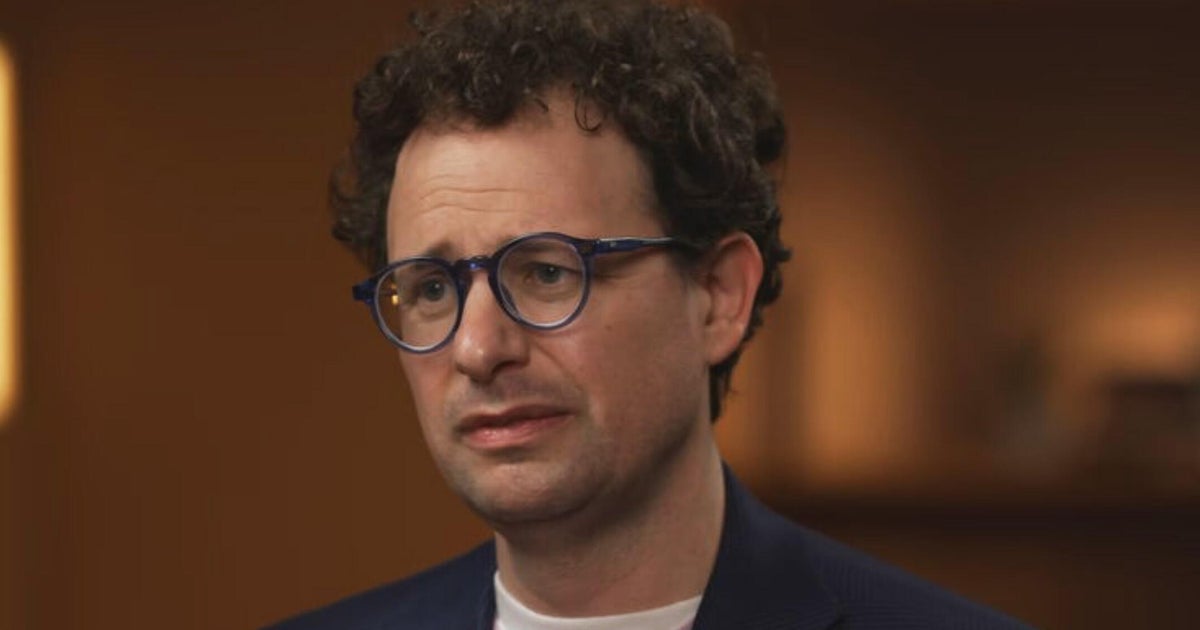Transcript: Rep. Adam Schiff on "Face the Nation," Aug. 14, 2022
The following is a transcript of an interview with Democratic Rep. Adam Schiff of California that aired Sunday, Aug. 14, 2022, on "Face the Nation."
MARGARET BRENNAN: We want to go now to California Democratic Congressman Adam Schiff. He's the chairman of the Intelligence Committee and his book "Midnight in Washington" is now out in paperback. Good morning to you, Chairman Schiff.
REP. ADAM SCHIFF: Good morning.
MARGARET BRENNAN: You are typically told about covert operations, ongoing national security threats. Do you have any sense at this time whether the information that Donald Trump had in his Florida residence posed any kind of threat to national security?
REP. SCHIFF: Well, all I know about the actual materials is what was in that search warrant inventory, but from that alone, you can tell there was a serious risk to disclosure potentially of sources and methods, because some of those documents were marked top secret, sensitive compartmented information. That is among the highest of designation in terms of the- the extremely grave damage to national security that could be done if it were disclosed. So, the fact that they were in an unsecure place that is guarded with nothing more than a padlock or whatever security they had at a hotel is deeply alarming. And I have asked for, along with Chairman Maloney, a damage assessment by the intelligence community and a briefing to Congress.
MARGARET BRENNAN: Will you get one? Have you heard from the Director of National Intelligence?
REP. SCHIFF: I have not heard back yet. But I'm confident we will get one and I'm confident the intelligence community will do a damage assessment that is, I think, fairly routine when there has been the potential risk of disclosure of national security information or classified information. What is, to me, most disturbing here is the degree to which at least from the public reporting, it attempted- you know, it appears to be willful, on the President's part, the- the- the keeping of these documents after the government was requesting them back. And that is- adds another layer of concern.
MARGARET BRENNAN: So, if there were truly materials of this classification level, and it's been publicly reported elsewhere, that there were materials related to nuclear programs, for example, if there was that sensitive level of information being held, why did Justice Department officials wait 18 months after the end of the Trump presidency? What changed that made this immediate?
REP. SCHIFF: I don't know. But if the Trump people represented that they provided all the classified or national security information and didn't, that's a serious problem. I can tell you anyone in the intelligence community that had documents like that marked top secret SCI, in their residence after authorities went to them, you know, they would be under serious investigation.
MARGARET BRENNAN: You know, the President has broad declassification authority when he is in office, but typically a declassification is memorialized in some way. Can you seek out the answer to the question of whether there actually is record of whether Donald Trump declassified that? That's his defense here, that anything he had, he had already declassified.
REP. SCHIFF: Yes, we should determine, you know, whether there was any effort during the presidency to go through the process of declassification. I've seen no evidence of that, nor have they presented any evidence of that. The idea, first of all, a former president has no declassification authority. And the idea that 18 months after the fact Donald Trump- Trump could simply announce, well, I'm you know, retroactively declassifying or whatever I took home had the effect of declassifying them is absurd. But nonetheless, the statutes the Justice Department are asserting in the search warrant, don't even require that they still be classified. If they would be damaging to national security, it's a problem. It's a major problem. And finally, I'd like to add the reaction of many of my Republican colleagues and those around the former president to attack the FBI over this and endanger FBI agents is just another damaging level of irresponsibility.
MARGARET BRENNAN: Well, also, we learned this past week that your colleague, Congressman Scott Perry, who leads the Freedom Caucus- the Justice Department seized his cell phone as part of their investigation into the attempts to overturn the election results in 2020 and that slate of fake electors. The committee looked into his actions and the slate of fake electors. We heard during the public testimony about that, and some conspiracy theories that he had been talking to Mark Meadows, the Chief of Staff, about. Are those two parts of those investigations overlapping here?
REP. SCHIFF: Well, to the degree that the Justice Department appears to be investigating the fake elector plot, then yes, our investigations would very much be overlapping. What is to me most striking about the seizure of that phone is in order to do that, of course, they would have to make a showing to a judge or grand jury about there being probable cause that there was evidence of a crime on that phone and the fact that it was a member of Congress's phone, I think, would make the Justice Department all the more certain, or need to be certain, that they had the probable cause. And that also suggests the Department thinks that this fake elector plot was a violation of law, which I think it certainly was. So, I think it's very significant. All those respects.
MARGARET BRENNAN: Yeah, and just- that is its own federal investigation there. On another topic, I want to ask you, we are coming up on this one-year anniversary of the U.S withdrawal from Afghanistan, and the Taliban takeover of that country. You said at the time of the withdrawal, that you would have liked the military to stay on as long as necessary to get Americans out and fulfill our obligation to our allies. You had pledged vigorous oversight. We haven't seen the White House or State Department after-action reports on this. The country is just in utter devastation under Taliban rule. Did it really have to be this bad?
REP. SCHIFF: Well, I certainly don't think the withdrawal had to go as it did, and the loss of American lives during the withdrawal, and the degree to which it took months and months and we continue to try to help people escape from Afghanistan, I think could have been handled differently. But I do think that we- we have demonstrated, the administration has demonstrated with the killing of Zawahiri, the number two in Al-Qaeda under Bin Laden, that it retains the capability, much as it said it would a year later to go after those that threaten the country
wherever they may be, in this case, the heart of Kabul. I think, you know, the killing of Zawahiri, shows both the danger and also our capability. The danger in that I think clearly high elements of the Taliban government had to know that he was there and were giving him safe harbor at the same time.
MARGARET BRENNAN: –Is Al-Qaeda an ongoing threat?
REP. SCHIFF: Al Qaeda is an ongoing threat. I think, though, that the threat from al Qaeda is probably greater outside Afghanistan than it is in Afghanistan.
MARGARET BRENNAN: Chairman Schiff, thank you for your time this morning. We'll be back in a moment.



